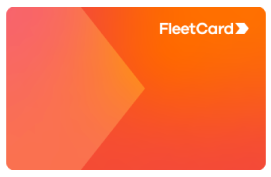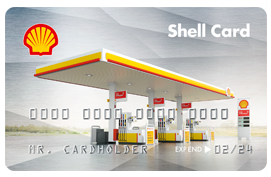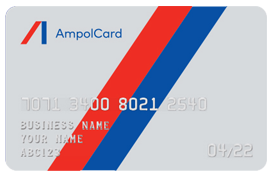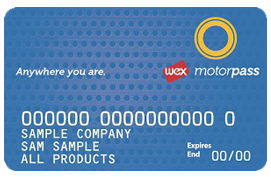When putting together this list of the best fuel cards for small businesses, we looked closely at these changes—like which stations are rolling out EV chargers, growing their networks, and setting themselves up as leaders for Australia’s hybrid and electric vehicle future.
2024 Industry Recap
The fuel industry saw some major moves in 2024, with key players expanding, rebranding, and stepping up their efforts to support electric vehicles (EVs).
- BP Expands with X Convenience
BP added over 50 new locations by acquiring South Australian chain X Convenience, growing its network across South Australia and Western Australia. As part of the expansion, BP has plans to introduce EV charging stations at these new sites, preparing for Australia’s shift towards cleaner transport options. - Viva Energy Rebrands Coles Express to Reddy and Acquires OTR
Viva Energy officially rebranded Coles Express sites to Reddy and also expanded its market presence with the acquisition of OTR, creating a stronger and more unified network. Now with over 700 locations, Viva Energy offers a mix of fuel, EV charging, and quality in-store services, making it easier for drivers to refuel, recharge, and grab a quick bite. - Ampol Rolls Out More EV Charging with AmpCharge
Ampol expanded its AmpCharge network, launching its first dedicated EV charging site at Sydney’s East Village. With plans to roll out over 100 charging stations nationwide, Ampol is positioning itself as a key player for businesses managing electric and hybrid fleets. - EV Fast-Charging on the Rise
Australia’s EV charging network grew by 90% in 2024, showing just how quickly things are shifting. By the end of 2025, the number of fast-charging stations is expected to double, making it easier for EV drivers to keep moving. - FleetCard Introduced FleetCard +Electric
FleetCard introduced Australia’s first all-in-one card for fuel, fleet, and EV expenses. This new offering combines access to over 90% of fuel sites across the country with more than 2,000 EV charging stations, thanks to FleetCard’s partnership with Chargefox. Designed for businesses transitioning to mixed or fully electric fleets, FleetCard +Electric simplifies expense management by consolidating all vehicle costs—fuel, EV charging, maintenance, and repairs—into a single monthly invoice.
Meanwhile, Shell is starting 2025 strong, adding Blueberry 500kW ultra-fast chargers at key sites. These chargers will meet the growing demand for EV infrastructure and keep Shell stations ready for the future of electric vehicles.
Together, these changes have put BP, Viva Energy, Ampol, and Shell at the top of the fuel and EV game in Australia. With bigger networks, better infrastructure, and a focus on convenience, they’re ready to meet the needs of both traditional fuel drivers and the growing number of EV owners.
TLDR: Best Fuel Cards at a Glance
- Best for EV Fleets: Fleet Card, with its vast network of nearly 6,000 fuel sites across Australia, is ideal for businesses with extensive travel needs.
- Best for New Businesses: Shell Card offers friendly terms for businesses with less than 12 months of financial history, making it easier to manage fuel expenses from the start.
- Best for Tradies: Wex Motorpass is perfect for tradespeople with a small fleet, offering wide acceptance and comprehensive reporting for easy expense management.
- Best for Transport & Logistics: AmpolCard provides significant savings and efficient fleet management tools, tailored for the transport and logistics sector.
Best Fuel Cards for Small Businesses
Most Widely Accepted Fuel Card – FleetCard
If your business operates across Australia and needs access to multiple fuel stations, FleetCard is a standout choice. It’s accepted at 90% of fuel sites nationwide, covering nearly 6,000 multi-branded fuel stations and an additional 6,000 partner sites, including repair centres and dealerships.
Why It’s Great:
- Widespread Access: Perfect for businesses covering large areas, so fuel is always within reach.
- Volume Discounts: Offers cost savings for businesses with bigger fleets.
- Easy Management: Consolidates all expenses into one simple, tax-approved invoice.
- Improved Cash Flow: Up to 51 days interest-free credit to help manage your cash flow.
- Extra Savings: Access discounts on repairs, parts, and even fuel promotions at Shell and Coles Express sites.
FleetCard +Electric: If you’re transitioning to electric or hybrid vehicles, FleetCard now offers FleetCard +Electric. This all-in-one card works at over 90% of fuel sites and gives access to more than 2,000 EV charging stations through its partnership with Chargefox—helping businesses manage fuel and EV expenses seamlessly.
Considerations:
- Newer businesses (under 12 months) may face stricter credit checks.

Save up to 6c per litre on fuel for your business
Best Fuel Card for Newer Businesses – Shell Card
New businesses often struggle to get fuel cards due to limited credit history, but the Shell Card offers flexible terms, making it a great option for businesses just starting out.
Why It’s Great:
- Strong Network: Accepted at 1,500+ Shell sites across Australia, including new locations.
- Rewards Program: Earn Flybuys points at Shell Coles Express stations.
- Highly Rated: Consistently receives high scores for customer satisfaction.
- Added Value: Includes services like car washes and roadside assistance for extra convenience.
Considerations:
- Credit terms may start shorter for newer businesses but can improve as your history builds.

Save 6c/l + $0 card fees in promo period
Best Fuel Card for Tradies – WEX Motorpass
For tradies managing small fleets, WEX Motorpass is a flexible option. It’s accepted at 93% of fuel stations nationwide and can also be used at 6,000 partner locations for vehicle expenses like servicing and repairs.
Why It’s Great:
- Easy Access: A great fit for tradies travelling between job sites.
- Saves Time: Reduces paperwork with clear and detailed expense tracking.
- Detailed Reporting: Provides itemised reports to manage fleet costs efficiently.
Considerations:
- It can’t be combined with other loyalty programs, so savings might be limited for some businesses.

200+ Ampol National Truck Stops
Best Fuel Card for Transport & Logistics – AmpolCard
For time-sensitive industries like transport and logistics, AmpolCard offers strong discounts on diesel fuel and powerful online tools to manage your fleet expenses.
Why It’s Great:
- Exclusive Savings: Special rates on diesel help cut costs for large fleets.
- Online Tracking: Manage fuel spending and maintenance with an easy-to-use online dashboard.
- No Transaction Fees: Save more with zero fees for fuel transactions.
Considerations:
- Limited to Ampol sites, which could be a drawback in areas without Ampol coverage.
- Additional services may include monthly fees, so choose only what you need.

1% Off On Total Fuel
BONUS: Credit Cards with Fuel Benefits
A common question that often pops up is whether using a corporate credit card rather than a fuel card for your fleet is better. Depending on the credit card you choose, it’s certainly something to consider. After all, any arrangement that allows you to receive rewards for the necessary costs of running your business is always a plus! Here’s a quick comparison to consider:
| Credit Cards | Fuel Cards |
|---|---|
| Allow your drivers to carry only one card for all their business expenses | Specifically designed for purchasing fuel for a fleet, rather than a credit card designed for entertainment purchases |
| The card will be accepted almost everywhere | Offer better fuel spending controls |
| Credit cards can offer rebates for a wide variety of expenses | Often provides reports with helpful data, such as fuel type, cost per unit, vehicle data, etc |
| If you use a credit card that offers frequent flyer miles, you can use those miles to cover your holidays, or offer trips as incentives for your team | Can provide information such as cost per km, km per litre. This information helps you to better manage fleet expenses |
| Can offer additional features such as travel insurance and interest-free periods | Fleet fuel costs are kept separate rather than lumped together with other expense data |
| Corporate card programs can be susceptible to fraud and cloning than fleet fuel cards, which used closed merchant networks | Fuel card offers you more control and allows you to impose spending limits |
Fuel Card Benefits for Small Businesses in Australia
Fuel cards are a game-changer for small businesses, saving time and money while simplifying fleet management. Here’s how:
- Save on Fuel: Access pump discounts and bulk savings—especially helpful for businesses with larger fleets. Plus, detailed reporting can help identify areas to reduce fuel usage.
- Simplify Expense Management: Say goodbye to piles of receipts. Fuel cards provide clear, digital statements for easy budgeting and tax reporting.
- Cut Admin Costs: Automated reporting reduces paperwork and human errors, freeing up time for other tasks.
- Boost Security: With PIN protection and transaction monitoring, you can track purchases and prevent misuse.
- Convenience for Everyone: Employees don’t need to pay out of pocket or wait for reimbursements. Fuel cards keep things simple and streamlined.
Tips for Choosing the Right Fuel Card
- Coverage: Check that the fuel card works at stations your team uses regularly. Multi-brand cards offer more flexibility, while single-brand cards often come with better discounts.
- Rewards: Look for cards offering perks that align with your needs—like fuel discounts or loyalty points.
- Security: Opt for cards with PIN protection and transaction monitoring to reduce the risk of misuse.
- Fees: Compare monthly fees, transaction charges, and hidden costs to get the best value.
- Fleet Size: Some cards are tailored for small businesses, while others work better for larger operations with many drivers.
- Interest-Free Periods: Longer interest-free terms (up to 51 days) can help improve cash flow.
Find the Best Fuel Card for Your Business
The right fuel card can help you save money, simplify expense management, and support your fleet—whether you’re running petrol vehicles, hybrids, or transitioning to electric. Take a close look at your business’s needs and read the fine print to make sure you’re getting the best fit.



